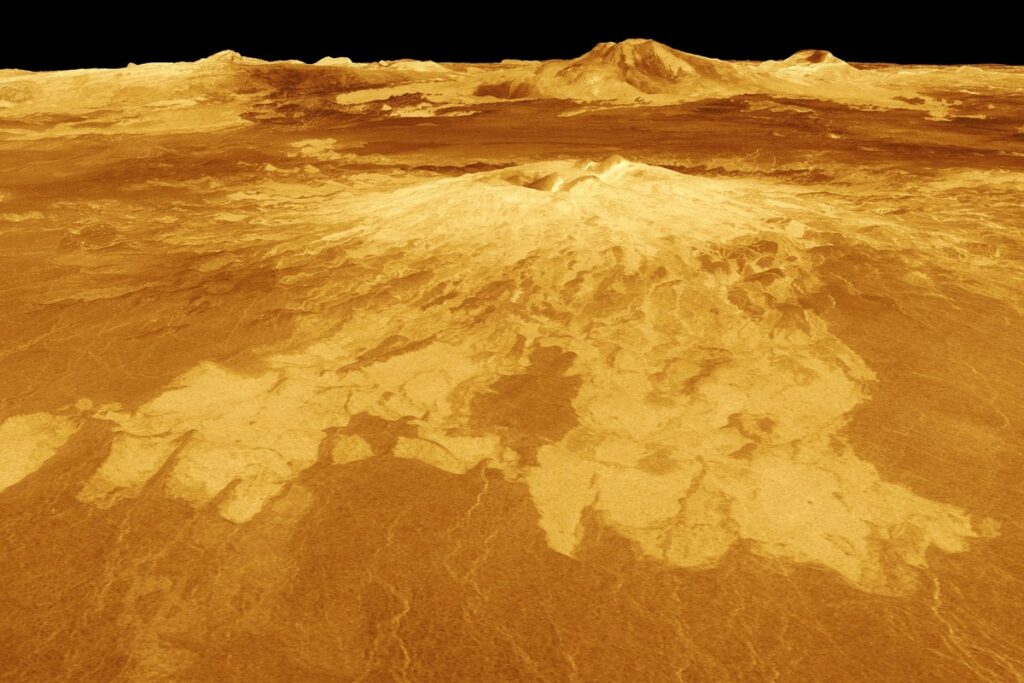
In a groundbreaking study, scientists have discovered that alien worlds might not require water to support life. This revelation comes from researchers at the Massachusetts Institute of Technology (MIT), who suggest that other liquids, specifically ionic liquids, could sustain life on planets previously deemed uninhabitable due to the absence of water.
Traditionally, the presence of water has been a fundamental criterion for determining the habitability of extraterrestrial environments. However, a new lab experiment published in the journal Proceedings of the National Academy of Sciences (PNAS) challenges this notion. The study proposes that salts, existing in liquid form at lower temperatures, might harbor life, albeit life forms vastly different from those on Earth.
Rethinking the Habitability Zone
The researchers focused on ionic liquids, which can remain stable at temperatures below 100 degrees Celsius. These liquids could potentially provide a hospitable environment for life-signature molecules such as proteins. Dr. Rachana Agrawal, a co-author of the study, explained, “We consider water to be required for life because that is what’s needed for Earth life. But if we look at a more general definition, we see that what we need is a liquid in which metabolism for life can take place.”
Dr. Agrawal further noted, “Now if we include ionic liquid as a possibility, this can dramatically increase the habitability zone for all rocky worlds.” This insight could redefine the search for life beyond Earth, expanding the scope to include planets that are too warm or have atmospheric pressures too low to sustain liquid water.
The Science Behind Ionic Liquids
On Earth, ionic liquids are predominantly industrially produced, with one rare natural occurrence resulting from the interaction of venoms from two rival ant species. The MIT team aimed to explore the conditions under which ionic liquids could naturally form, examining a range of temperatures and pressures.
Their experiments involved mixing sulfuric acid with 30 different nitrogen-containing organic compounds. By evaporating the sulfuric acid, researchers observed the formation of ionic liquids under various conditions. Dr. Sara Seager, another author of the study, expressed astonishment at the results, stating, “We were just astonished that the ionic liquid forms under so many different conditions.”
“If you put the sulfuric acid and the organic on a rock, the excess sulfuric acid seeps into the rock pores, but you’re still left with a drop of ionic liquid on the rock. Whatever we tried, ionic liquid still formed,” Dr. Seager explained.
Implications for Extraterrestrial Life
The findings suggest that ionic liquids could naturally form on other planets where liquid water is absent. Dr. Seager envisions a scenario where a planet warmer than Earth, lacking water, might still support life if sulfuric acid from volcanic outgassing interacts with organic deposits. “Organic deposits are extremely common in the solar system,” she noted.
This discovery opens new avenues for research into life-signature molecules that might survive and thrive in ionic liquids. Dr. Seager remarked, “We just opened up a Pandora’s box of new research. It’s been a real journey.”
Looking Ahead
The implications of this study are vast, potentially reshaping the criteria for habitability in the search for extraterrestrial life. As scientists continue to explore the possibilities of life in ionic liquids, the definition of what constitutes a habitable environment may expand significantly.
Future research will likely focus on identifying specific life-signature molecules that can exist in these alternative liquid environments. The study’s authors hope to inspire further exploration into the potential for life on planets previously considered inhospitable.
As the scientific community delves deeper into this new realm of possibilities, the quest to find life beyond Earth takes a bold step forward, challenging long-held assumptions and opening the door to a universe of untapped potential.







